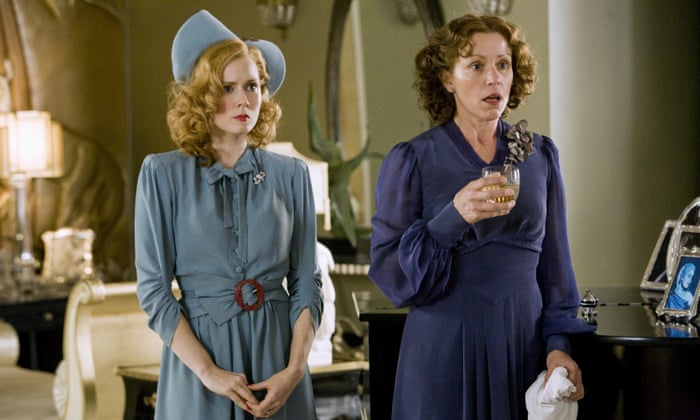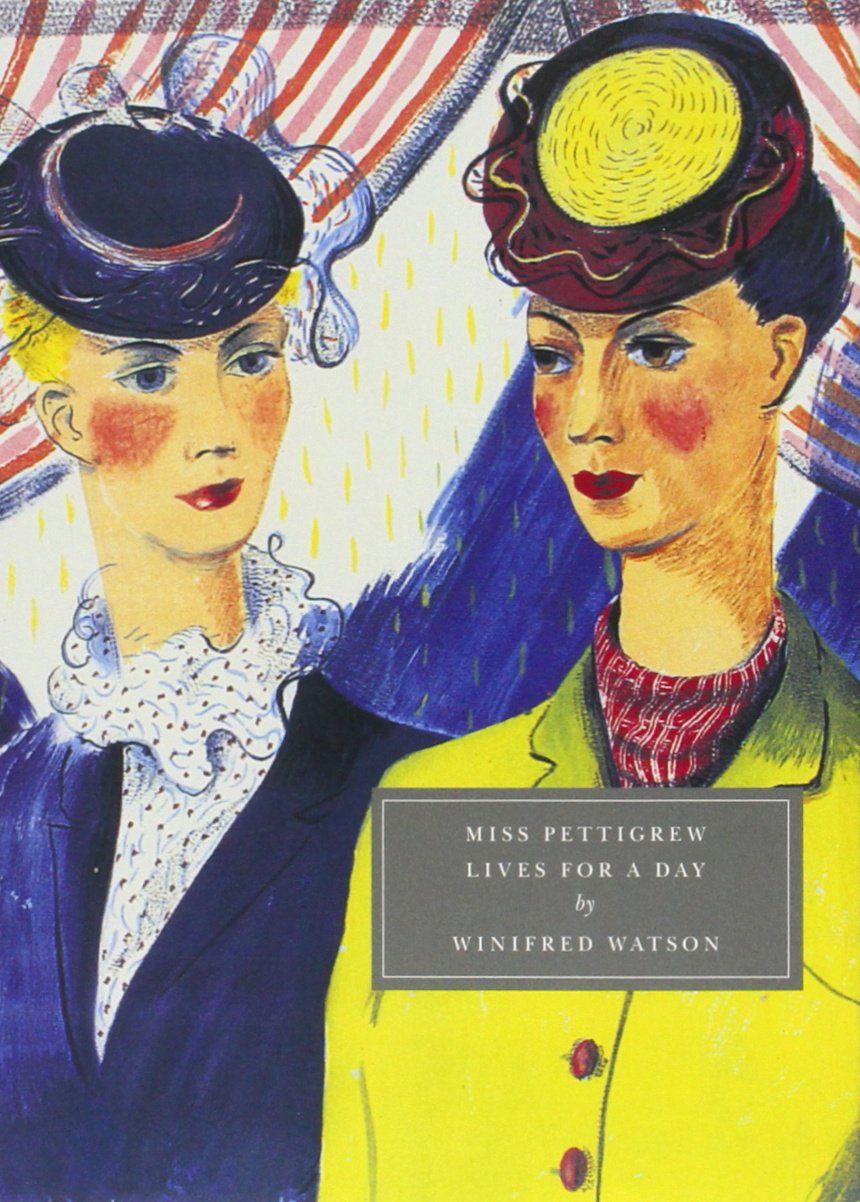 |
| Difficult questions … Amy Adams (left) and Frances McDormand in the 2008 film of Miss Pettigrew Lives for a Day. |
READING GROUP
Miss Pettigrew Lives for a Day is charming, but it is also racist
Winifred Watson’s daffy characters are inclined to cheerful antisemitism, at a time when Nazism was taking over Europe. Can we still enjoy it?
Sam Jordison
17 September 2019 In last week’s article on Miss Pettigrew Lives for a Day, I started with a silly but sweet bit of innuendo. It seemed a good way to introduce a book that is, for most of its 233 pages, a light, frothy delight and widely loved as a feelgood read, so much so that it was chosen as our “fun” book for September.
In last week’s article on Miss Pettigrew Lives for a Day, I started with a silly but sweet bit of innuendo. It seemed a good way to introduce a book that is, for most of its 233 pages, a light, frothy delight and widely loved as a feelgood read, so much so that it was chosen as our “fun” book for September.
I understand readers’ affection; for the most part, I share it. But there’s no getting around the feel-bad aspects of Miss Pettigrew Lives for a Day, specifically – as a few of you have pointed out – some distinctly racist passages.
We might as well face them head-on:
“Well tell her not to be a damned fool and that I’m the man for her and not that black-haired, oily, knife-throwing dago. Don’t think I’m blind.”“He’s not a dago,” said Miss LaFosse furiously.“If the cap doesn’t fit,” said Michael blandly, “how do you know who I’m talking about?”“You … you …” cried Miss LaFosse hotly and inadequately.“His great-great-grandfather was an Italian and blood will out. You can’t fool me.”
There’s more, unfortunately:
She stared at him. He was dapper, neat, brisk, with brilliant, liquid brown eyes and dark hair. He had a jutting nose, a full-lipped mouth and a look about him that said he was not a man to play tricks with, yet a hint he could be pleasant enough if folks were pleasant with him.“And yes,” thought Miss Pettigrew; “somewhere in his ancestry there has been a Jew.”
She revisits this idea later:
“I wouldn’t advise marrying him,” she tells her friend Miss LaFosse. “I don’t like to jump to conclusions but I think there was a little Jew in him. He wasn’t quite English. And, well, I do think when it comes to marriage it’s safer to stick to your own nationality.”
Shorn of context, it’s easy to see why these quotes cause offence. Even with context, they’re hard to forgive, and I don’t want to. This book was published in 1938. That kind of talk wasn’t just morally poisonous. Jewish people were already being murdered and losing their rights in Nazi Germany, and refugees were being turned away at international borders.
There’s no point in pretending that antisemitism was not common in genteel prewar Britain, or in denying that the characters in a delightful novel would share those opinions. (The characters’ beliefs as distinct from the author’s.) These snatches of dialogue may upset us but also be accurate to their world. What are we to make of the fact that Watson was prepared to disfigure her otherwise beautiful creation with those lines quoted above? Should our political and moral objections to those passages alter our reading of the rest of the book?
These are perennial questions; they have been asked of Roald Dahl, HP Lovecraft, JRR Tolkien and most recently in the Guardian, Enid Blyton. My general conclusion is that you can call out racism in a book without consigning it to history. We don’t have to like these things being said, but we should know about them.
And if you start blacklisting writers such as Winifred Watson for letting her characters say reprehensible things, where do you stop? I for one would miss reading Shakespeare and Charles Dickens and TS Eliot and just about everyone else who wasn’t born in our apparently more enlightened times. Aristophanes regarded everyone who spoke in a foreign language as a barbarian (which is to say, people who said “bababababa” when they spoke). Do we also have to lose all of his daft knob gags as a result? What can we expect future generations to say about us? Would we be cancelled?
Such abstract arguments are very distant from the real hurt that those lines I’ve quoted can cause. I still find them repulsive. But to accept that a book has imperfections is not the same as endorsing them. The world is complicated and so is literature – even when it’s supposed to be fun.


No comments:
Post a Comment